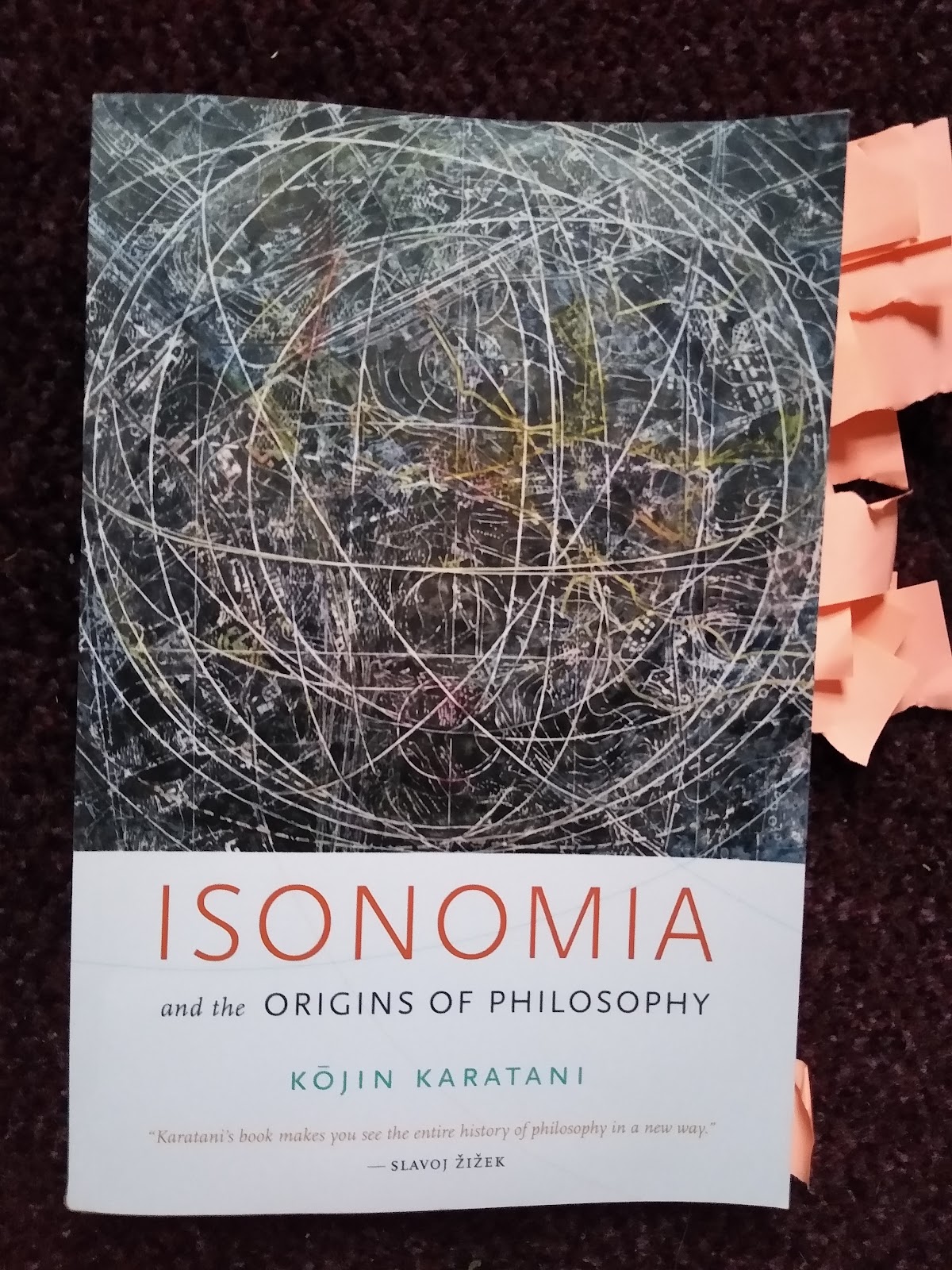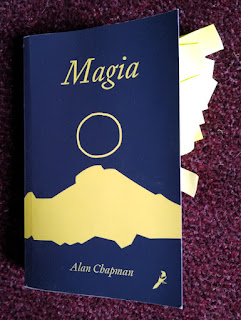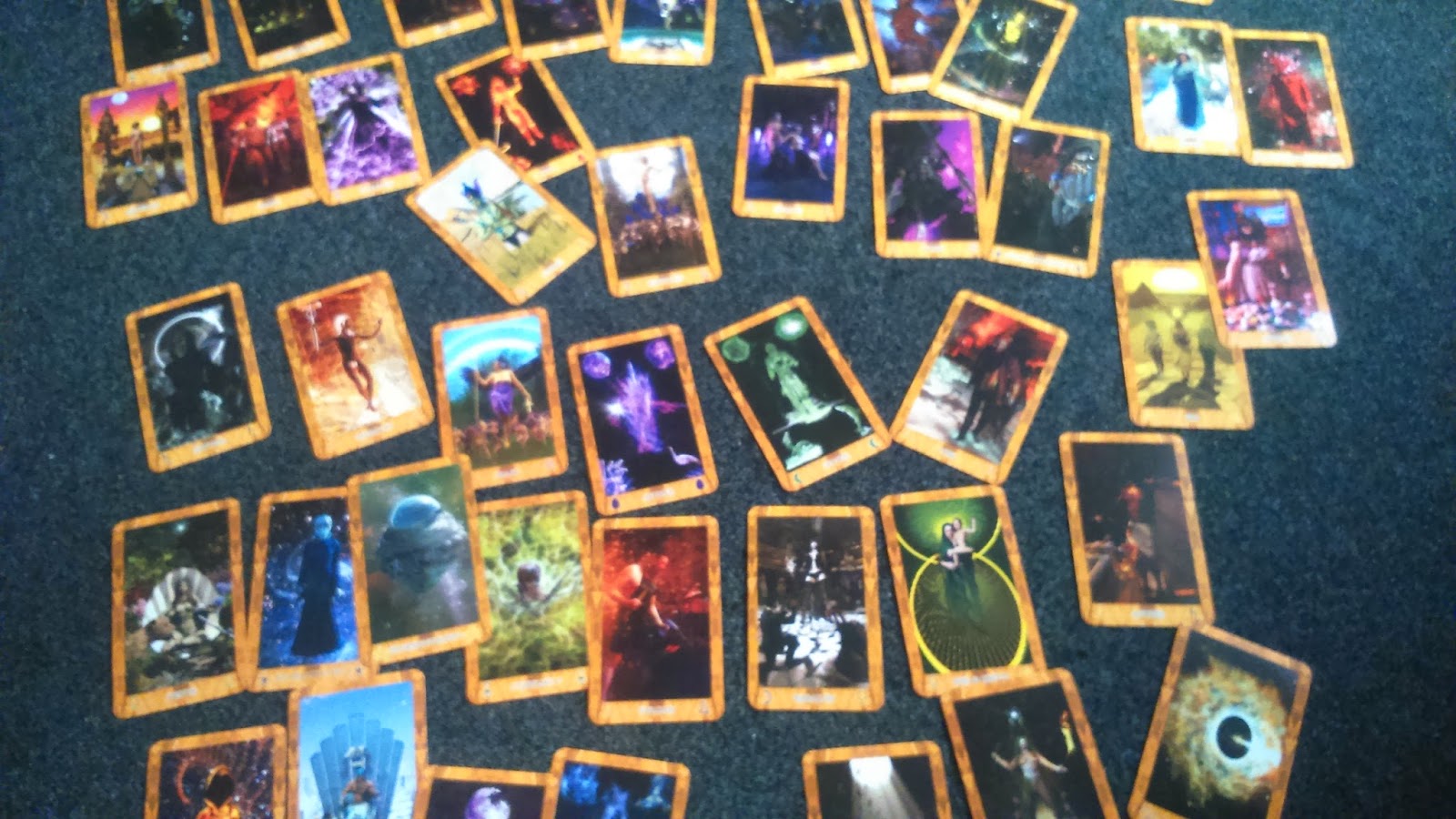Democracy, Anarchy and Isonomia
Isonomia and the Origins of Philosophy by Koji Karatana
I’ve read much of the work of Peter Kingsley, thereby getting a very particular view of Western philosophy - how Plato buried the Pre-Socratics under his system, how Aristotle delivered the final death blow to the ancient Hellenic lineage of mystical attainment and prophecy.
That view seemed complete when I acquired it, as is the tendency with rich, well-argued positions. Especially when there’s something you are looking for for yourself in that argument - in my case, a philosophical basis for my own path of magick and mysticism. Therefore I supported those ideas, I had skin in Peter Kingsley’s game.
So this book came along at a good time for me, having been put off Kingsley’s work by the increasingly rampant narcissism of his writings, culminating in the latest, his Book of Life.
Karatana builds an argument based on the idea of isonomia. I know, I’d never heard the word either. I initially misread it as ‘insomnia’. He expounds it as ‘no-rule’, a civic society where all are equal and all are free. He claims that the Greek colonies in Ionia (Western Turkey as it is now) exemplified such a society. This society then degrades into democracy, so he rejects totally the usual WestCiv narrative of Athenian democracy being the greatest thing ever. Rather, he shows how Plato spun Greek history to exclude the possibility of isonomia, replacing it with the wise rule of the philosopher-king.
There are some points of agreement with the kind of argument Kingsley makes. For a start, Plato is the villain of the piece for both thinkers. Specifically, his misrepresentation of the Sophists is a key point. However, while Kingsley tells us that Plato’s betrayal was of the ancient mystical tradition that descended via Pythagoras, Karatana sees his betrayal as being of the possibility of isonomia.
Karatana does admit that isonomia is only possible under certain conditions, most especially the ability of individuals to simply move out of an area if they don’t like the local politics. As well as the Ionian communities, he cites the early Althing-based society of mediaeval Iceland.
Karatana is an admirably clear and readable writer. Even for someone as unschooled in academic philosophy as myself this book is not a hard read. The author is a Marxist, which will be enough in itself to prompt a knee-jerk rejection of his work by some modern mystical thinkers, but his prose is mercifully free of the dogmatism which many Marxist writers feel they have to lace their texts with. His balanced, translucent style is refreshing after Kingsley’s sneering delivery.
In the end, the book indicates no kind of practical action to transform society for the better. No contemporary equivalent of the open spaces of the ancient Ionian seaboard and mediaeval Iceland exist on this planet. Rather, the book demonstrates a higher, more complete ideal beyond what we think of as the best that can be achieved in our societies. Like anarchism’s vision of a society entirely without coercion, this ideal remains in the abstract, a Utopia which cannot in the present day be made real for very long or for many people; so the world teaches us.
But that isn’t to say that such ideals are useless; far from it: an ideal is a special kind of cultural meme, a repository of ideas that survive in fringe discourse, until it eventually surfaces and changes history. Like the rune Tiwaz, the arrow that points straight up at the sky, ideals provide orientation but no concrete goal.
At the moment we have to make do with deeply corrupt 'democracies'; it’s worth bearing in mind that even a cleaned-up democratic system is still a make-do, a substitute for a nobler way of organizing human interactions. We can give our support to the best we find in current politics, while knowing that best isn’t the best possible.




Wow, I'm really keen to read this now. I read Kingsley's Reality, after you showed it to me when I visited your house, and absolutely loved it. Knowing very little about Carl Jung, and wanting to know very much, I recently bought Catafalque, but the fact that it opens with an epigraph in French, untranslated, immediately got my hackles up, made me think "fuck you, you snob". And that fact that 50% of the book is (interesting and pertinent) endnotes... I'm not against that per se, but I know from struggling through the work of Donna Haraway that I will have a 'mare of a time trying to read it. So I've got no further (I will do, but... ugh). Having watched a few YouTube videos of him has only increased my antipathy. Shame, as he is such an insightful and lucid writer. Anyway, Isonomia is going straight on the reading list. Thanks Dave!
ReplyDelete